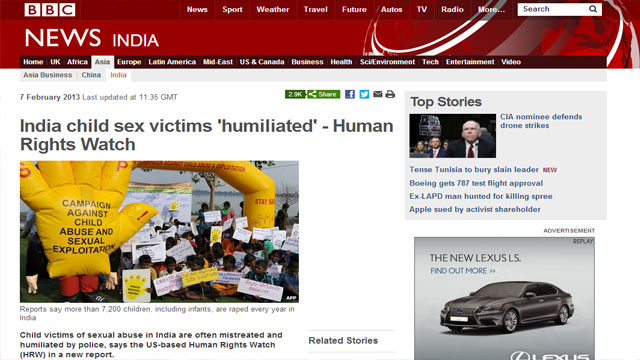SUMMARY
This is AI generated summarization, which may have errors. For context, always refer to the full article.
- Architect of drone war under fire

President Barack Obama’s choice to run the CIA defended US drone strikes against Al-Qaeda militants as a “last resort” but acknowledged the government needed to explain the covert raids better. As the architect of the drone war, John Brennan came under tough questioning at his confirmation hearing, as Democratic senators demanded the administration share more information about the strikes with Congress and the public. The hearing before the Senate Intelligence Committee had hardly begun before protesters opposed to the drone attacks disrupted the proceedings, heckling Brennan before police cleared the hall to restore order. As US Capitol Police removed protesters and other guests from the hearing room, one woman shouted: “This is a war criminal. He should not be confirmed!”
Read the full story on Rappler - Russian jets breach Japan airspace

Two Russian fighter jets violated Japanese airspace on February 7 as Tokyo scrambled its own planes in response, reportedly the first such incident in 5 years. The Russian planes were detected off the coast of northernmost Hokkaido island for just over a minute, shortly after Japan’s new prime minister said he wants to find a “mutually acceptable solution” to a decades-old territorial row between the countries. Japan’s foreign ministry lodged a formal protest over the incursion. Soviet forces seized the isles, which stretch out into rich fishing waters off the northern coast of Hokkaido, in the dying days of WWII and drove out Japanese residents.
Read the full story on Rappler - Near impact: Asteroid to narrowly miss Earth

Hold on to your hats: an asteroid will zoom within spitting distance of Earth on February 15, in what NASA said is the closest flyby ever predicted for an object this large. The 2012 DA 14, discovered by chance by astronomers after passing nearby last February, will be just around 27,700 kilometers above Earth’s surface when it speeds by, the US Space Agency said. That’s outside the Earth’s atmosphere, but closer than the orbit of most weather and communications satellites. Despite the close shave, NASA said there was nothing to fear.
Read the full story on Rappler - 2015: No more private planes in NAIA

The government will no longer allow private planes to operate in the Ninoy Aquino International Airport by 2015 to ease congestion in the Philippines’ main gateway, Abaya said this will allow commercial airlines to mount additional flights. Private planes and flying schools that are operating in the Manila airport would be transferred to Sangley Point in Cavite. Small aircraft operators, including flying schools and private airlines of the country’s richest, have been using NAIA for decades. They occupy a small portion of the NAIA airport complex, but their flights account for about 17% of total landings and take-offs at the airport runway.
Read the full story on Rappler - Roads biggest roadblocks to health

Some of the biggest roadblocks to health care in remote areas of the Philippines are the roads themselves. Inadequate infrastructure is particularly detrimental for pregnant women. “They can’t reach the hospital alive because they are geographically remote and distant,” said Health Undersecretary Teodoro Herbosa. Data showed showed high maternal mortality rate in geographically isolated and disadvantaged areas in the country. Only 14% of local roads are paved, compared to 69% of national roads, according to experts. And with a growing backlog in government infrastructure projects, the maternal death rate remains high.
Read the full story on Rappler - India child sex victims ‘humiliated’

The New York-based Human Rights Watch said in its latest report on India that child victims of sexual abuse are often abused by the police, according to BBC. The problem is “disturbingly common” in Indian schools and homes, the group said. The group cited a 2007 study showing that two out of every 3 children in India are physically abused. At least 57% of the almost 12,300 children surveyed also reported one or more forms of sexual abuse, BBC said. The Human Rights Watch report comes following scandals in India regarding gang rape.
Read the full story on BBC - Filipinos, Indonesians most optimistic

Consumers in Philippines and Indonesia are the most optimistic in the Asia Pacific region, according to a survey highlighting the neighbor countries’ “extreme improvements” in confidence despite the global uncertainty. The two countries led the 14 Asia-Pacific markets included in the MasterCard Worldwide Index of Consumer Confidence released on February 7.
The financial services firm noted that both countries have benefited from rising investment — from both domestic and international investors — amid slowdown in global economy affecting exports, a key source of economic growth. Considered Asia’s rising tigers, Indonesia and the Philippines posted healthy economic growth rates in 2012. The Philippines grew 6.6% and Indonesia 6.23%.
Read the full story on Rappler - Avoid flashing flesh, stars warned

US television network CBS has warned stars attending the Grammys music awards show at the weekend not to reveal too much skin, including breasts, buttocks — or the dreaded “buttock crack.” In an email leaked to media outlets, the television giant also warned of “puffy” bare skin exposure around the genital region, and said “thong type” costumes are problematic. Janet Jackson famously suffered a wardrobe malfunction during the half-time show of the 2004 Super Bowl, flashing a nipple during a routine with Justin Timberlake. The Federal Communications Commission (FCC) fined CBS a record $550,000 for broadcasting the incident, but an appeal court later ruled that the broadcaster could not be held responsible for so-called “Nipplegate.”
Read the full story on Rappler - 10 things you must know about love

Love in the brain is as fundamental as hunger and thirst. And it only takes a fifth of a second to fall in love. From both observation and our own experiences, we know that love creates as much mess as it gives unparalleled joy to our fragile lives. Before the neuroscience of love which only began to seep into public awareness in the last 20 years at most, we sought relief from the humanities – reading novels and poetry which echo our travails and triumphs in love. But here’s a list of 10 things in science about love that we did not know then.
Read the full story on Rappler - Enrile son drops in latest survey

Senatorial candidate Juan “Jack” Ponce Enrile Jr dropped almost 13 percentage points in the latest Pulse Asia released on February 8. The survey was conducted at the height of efforts to remove his father and namesake as Senate president. Pulse Asia conducted the survey from January 19 to 30, covering the time when Enrile Sr offered to vacate the Senate presidency after re-electionist Sen Antonio Trillanes IV bared an ouster plot. In the survey, Jack Enrile got a voting preference of 40.4%, a big drop from the November 2012 Pulse survey, where he got a preference of 53.2%. Among those tied with the younger Enrile is his father’s nemesis, Trillanes, who got a voting preference of 41.1%.
Read the full story on Rappler
Add a comment
How does this make you feel?
There are no comments yet. Add your comment to start the conversation.